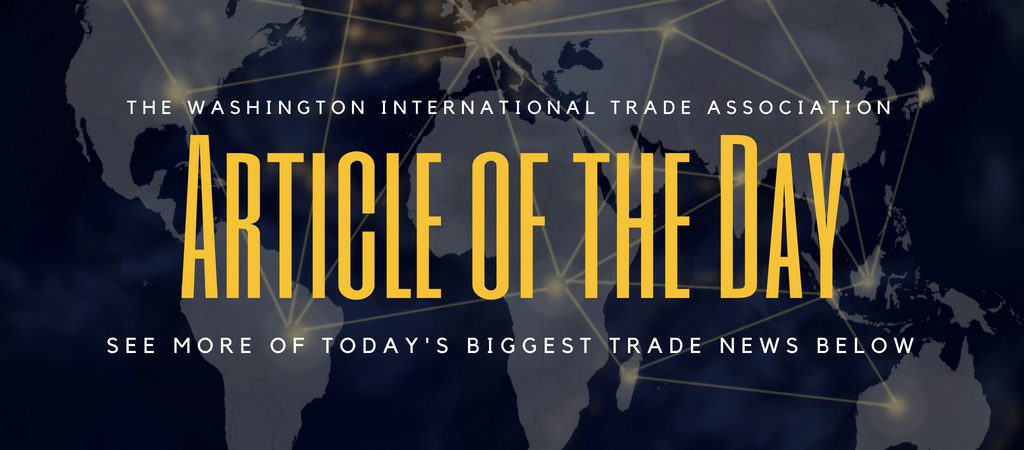Perhaps the most noticeable part of Trump’s State of the Union address on Tuesday night was what wasn’t there: any mention of his path forward on trade.
Trump ran through a list of trade accomplishments toward the start of his speech, name-dropping both the “phase one” China deal and the USMCA in an address that leaned heavily on the strength of the U.S. economy as a selling point for his administration.
But he did not talk about any trade negotiations that are on the horizon — with the U.K. and European Union, for example — nor did he mention that talks with Beijing are still ongoing. That comes after the White House hinted ahead of the speech that Trump was likely to use it as an opportunity to provide details on phase two.
“For decades, China has taken advantage of the United States,” Trump said. “Now, we have changed that.”
A partisan celebration: In highlighting the U.S.-Mexico-Canada Agreement, Trump once again did not give any credit to House Democrats who helped shepherd the pact across the finish line in Congress.
He did, however, highlight that it was the first major trade deal to earn strong support from labor unions in years, a nod to the AFL-CIO’s ninth-inning endorsement of the pact (which, of course, came only after Democrats succeeded in making significant changes to its labor, environmental, enforcement and drug pricing provisions).
Our fact-check and annotation of the full State of the Union is here.
Zoellick trashes Trump’s China deal:
Former U.S. Trade Representative Robert Zoellick had harsh words Tuesday for Trump’s bilateral trade deal with China. “I don’t think it will work, but it’s got political spin,” Zoellick, who’s also a former head of the World Bank, said at a Washington International Trade Association event.
Zoellick, who served as trade representative under George W. Bush, identified six big challenges in the U.S.-China relationship: Beijing’s market access barriers, its use of state capitalism, its ambitions to dominate future technologies, its Belt-and-Road initiative, its foreign security policy and the “creepy” ways it keeps tabs on its own citizens.
The tariffs imposed by Trump “are not the right wrench” for dealing with any of those issues, but they do have the political advantage of resonating with Trump’s base, Zoellick said.
He warned that Trump is likely to ratchet up tensions with Beijing again next year, if he’s reelected in November. Zoellick added he expects Trump to follow through on threats to get tough with the European Union on trade, but concern about hurting the U.S. economy may stop him from imposing tariffs on European autos until next year.
Azevêdo: structural changes necessary for dispute process:
Azevêdo said conversations in Geneva are shifting toward how to make the WTO’s embattled dispute settlement body more agile and less political.
“I think most likely we’re going to have structural changes on how the Appellate Body operates and how the dispute settlement mechanism operates in general,” he said at the WITA event.
The WTO chief said there is a “sense of urgency” in the U.S. to improve the dispute process and other aspects of the organization. The U.S. has forced a crisis at the WTO’s highest dispute panel by blocking the reappointment of members to the Appellate Body over complaints that the panel has strayed too far from its legal mandate and disregards procedural constraints.
Next steps: Azevêdo didn’t meet with U.S. Trade Representative Robert Lighthizer or Trump during his visit but said he can return anytime to help turn ideas into concrete proposals. “I need somebody to tell me, ‘This is the time,’” he said.
“A lot in Geneva is about the mindset,” he said. “If people don’t believe that we actually are going to change things, they’re going to say the right things, they’re going to do the right things, but they’re not really going to commit and take the risks that are necessary.”
To see the full article, click here.

